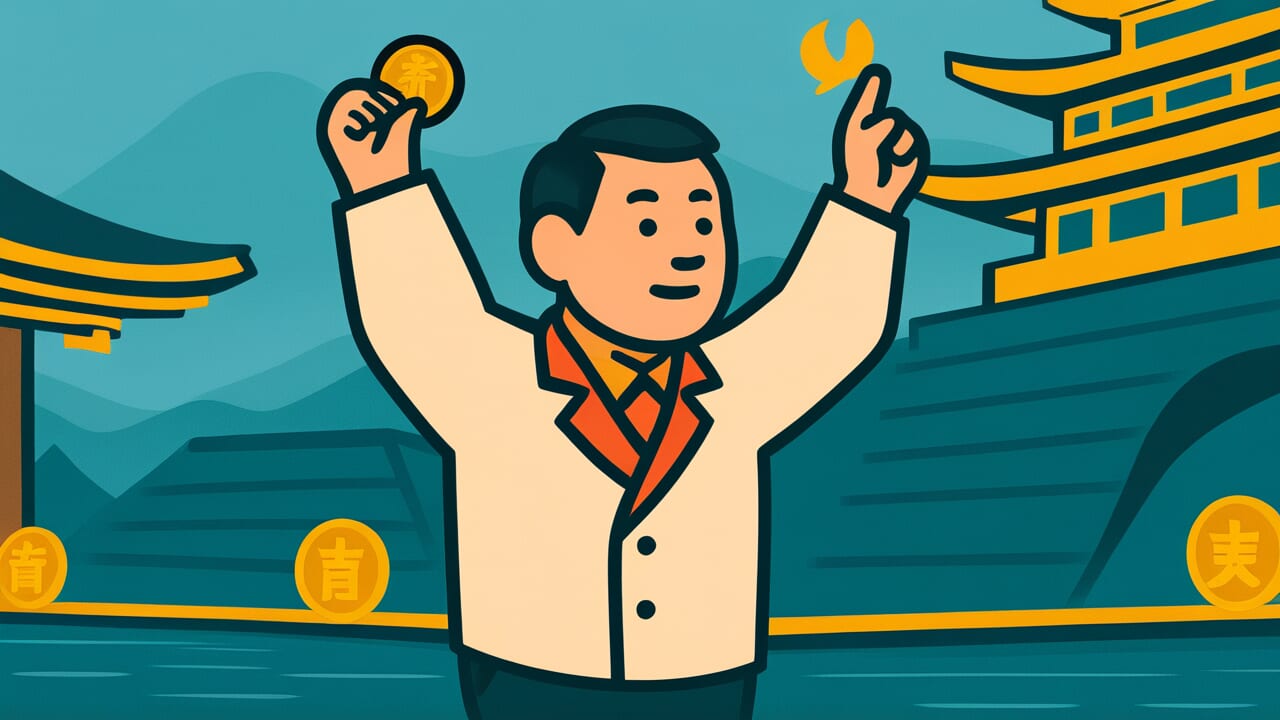How to Read “Throwing money to China”
Tō e nage gane
Meaning of “Throwing money to China”
“Throwing money to China” is a proverb that describes money wasted so completely that it will never come back, just like money thrown to a distant land.
This proverb is used when you regret how you spent money. It refers to situations where you gained nothing and lost your money completely.
The expression carries a stronger meaning than simple waste. It emphasizes irreversible, unrecoverable loss.
The proverb works because “China” creates a vivid image of an extremely distant foreign land. This makes the idea of money never returning more powerful.
Simply saying “it was wasted” doesn’t convey the same sense of hopelessness. The distance makes recovery absolutely impossible.
Today, people use this proverb for ineffective investments or expenses with no return. It applies to failed business investments or expensive purchases that proved useless.
The saying expresses regret when you spend money but gain nothing in return.
Origin and Etymology
No clear written records explain the origin of this proverb. However, the structure of the phrase reveals an interesting background.
“Tang” refers to ancient China, which was an incredibly distant foreign land from Japan’s perspective.
From the Nara period through the Heian period, Japan sent envoys to Tang China. The distance between the two countries was unimaginable.
With the navigation technology of that time, crossing the East China Sea was a life-threatening journey. Many people who departed never returned.
The expression “throwing money” to this distant place of “Tang” symbolizes something that will never come back.
Money was a precious resource. If you threw it to a faraway place, recovering it would be impossible.
Money thrown across the sea to a foreign land could never be retrieved.
This proverb reflects the geographical awareness of people in ancient times. Using the specific place name “Tang” creates a much stronger image of “never returning” than simply saying “a distant place.”
The remoteness of the distance directly represents the irreversibility of wasteful spending. This is a skillful metaphorical expression.
Usage Examples
- I fell for that fraudulent investment scheme, and it was truly throwing money to China
- Paying expensive tuition and then quitting without attending once is nothing but throwing money to China
Universal Wisdom
The proverb “Throwing money to China” contains the essence of human regret. Why do we deeply reflect on how we spent money only after we’ve lost it?
Humans have a tendency to lose sound judgment when blinded by immediate desires or expectations.
We become dominated by wishful thinking like “This is a good investment” or “This will surely be useful.” At the moment we spend money, we never imagine it will be wasted.
But when the results come and we’ve gained nothing, we finally realize “That was a waste.”
This proverb has been passed down through generations because the pain of regret is universal across time.
The pain of losing money, a limited resource, hasn’t changed from ancient times to today. By expressing this pain through the irreversible distance of “throwing to Tang,” the saying creates a warning not to repeat the same mistake.
Our ancestors knew that humans are creatures who repeat the same failures. That’s why they created proverbs with powerful imagery to remind us to be careful.
The wisdom to pause before spending money—that’s the universal lesson embedded in this proverb.
When AI Hears This
Claude Shannon, founder of information theory, explained communication success through the relationship between “channel capacity” and “noise magnitude.”
No matter how valuable the information, it cannot be transmitted correctly through a channel with too much noise. This proverb verbalized that principle over 2,000 years ago.
Analyzing the act of throwing money to distant Tang reveals a dual noise structure.
First is physical distance as noise. Information (in this case, the value of money) experiences attenuation and distortion before reaching its destination.
Second is cultural distance as noise. Even if it physically arrives, the receiving side has a different value system from the sender, so the meaning cannot be correctly decoded.
Shannon’s theorem mathematically proves that when noise exceeds a certain threshold, the error rate increases sharply and communication becomes practically impossible.
What’s interesting is the observation that even money, which should have universal value, becomes meaningless if channel quality is poor.
In modern internet communication, no matter how important a data packet is, it must either repeatedly retransmit or eventually give up communication on a noise-filled line.
This proverb intuitively grasped the essence of communication theory: information value and channel quality are independent variables, and if the latter is terrible, the former becomes powerless.
Lessons for Today
“Throwing money to China” teaches modern people the importance of “taking a breath” before spending money.
Modern society demands instant decisions from us. One-click online shopping, limited-time sales, investment opportunities available only now.
Amid these temptations, this proverb gives us the courage to pause. It reminds us of the importance of taking time to think calmly: Is this really necessary? Does this really have value?
What’s especially important is balancing not fearing failure too much with avoiding reckless gambles.
This proverb doesn’t deny all spending. Rather, by teaching the sadness of money wasted without thought, it helps us develop an eye for discerning valuable uses.
When you’re about to spend money on something, ask yourself: “Will this be throwing money to China?”
That question will protect your precious resources and give you the wisdom to use them for truly meaningful things. Choices without regret begin with just a little thoughtfulness.



Comments